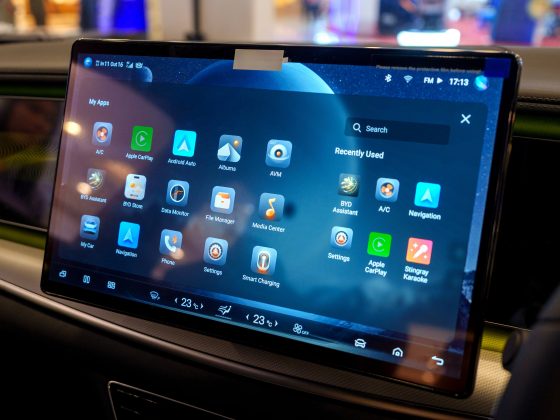Here in the United States, an average of 38 children die each year due to a heatstroke as a result of being left in a hot vehicle. According to Kids and Cars, a non-profit child safety organization, more than 730 children have died since 1991 as a result of them being forgotten in the car by their parent or care giver, having themselves entered a vehicle unattended later becoming trapped, or even being intentionally left in their by a parent or caregiver. The chart below lists the annual deaths each year since that time.
Use eTags© to Quickly Complete Your DMV Service. Renewals, Title Transfers and More, All Online!
| Year | Deaths (Ages 2-14) | Year | Deaths (Ages 2-14) |
| 2015 | 8 | 2006 | 29 |
| 2014 | 32 | 2005 | 47 |
| 2013 | 44 | 2004 | 39 |
| 2012 | 34 | 2003 | 43 |
| 2011 | 33 | 2002 | 31 |
| 2010 | 49 | 2001 | 39 |
| 2009 | 33 | 2000 | 35 |
| 2008 | 43 | 1991-1999 | 156 |
| 2007 | 37 | ||
| TOTAL | 732 | ||
What is Heatstroke?
A heatstroke is classified as a medical condition in which the human body overheats to a temperature of 104 degrees or more. Heatstrokes are usually due to long periods of exposure to hot and humid temperatures. For kids in hot cars, it can take only 15 minutes before a child may sustain a heatstroke and other complications as a result of the condition. The symptoms of a heatstroke include:
- Lack of sweating despite the heat
- Skin that’s red, hot, and dry
- Weakness or cramping of the muscles
- Nausea or vomiting
- Increased heartbeat (either strong or weak)
- Confusion, disorientation, or staggering
- Severe headaches, dizziness or hallucinations
- Seizures or unconsciousness (usually leading to death)
It’s important to note that a child’s thermo-regulatory system is not as efficient as an adult’s. A child’s body heats up 3 to 5 times quicker than an adult’s.
How Hot Can a Vehicle Get?
When a vehicle sits directly in the sun with the windows up, the inside can heat up quite quickly. Stanford Medicine News Center writes that, within an hour, a motor vehicle can heat up by an average of 40 degrees F to life-threatening levels. Up to 80% of that increase in temperature takes place within the first 30 minutes.
To put things in perspective, the inside of a vehicle, when parked in the open sun, can get to 140 degrees on a 90 degree day. Cracking the window has little effect on decreasing the inside temperature. The chart below lists the average progression of temperature on the inside of a vehicle while parked in the sun based on a 2002 study of ambient temperatures between 72 and 96 degrees.
| Average Heat Progression in a Motor Vehicle Sitting Directly in the Sun | |
| 10 minutes | 19 degrees F |
| 20 minutes | 29 degrees F |
| 30 minutes | 34 degrees F |
| 60 minutes | 43 degrees F |
| 1 to 2 hours | 45-50 degrees F |
Taking Preventive Measures
SaferCar.gov offers a few great tips and other resources to help prevent future incidences of injury or death of a child as a result of being left in a hot vehicle:
- Never leave your children in the vehicle alone, even if the windows are down.
- Place a purse, a briefcase, or another item you usually take with you when you exit the car in the back seat so that you are required to look there before leaving the car.
- Place a teddy bear or other stuffed animal in your child’s car seat when not in use. When your child is in the car seat, move the teddy bear to the front seat as a visual reminder that your child is in the back.
- To keep children from crawling into the car and locking themselves in, make sure that you lock the car after you’ve fully exited the vehicle even if it’s parked in a garage and keep the keys away from children.
- Use drive-thrus whenever possible to avoid making the concessions, and possibly deadly, decision to leave your child in the car to run a quick errand. If that is not an option, just take them with you or run your errand at a different time that is more convenient and safe for everyone.
- Make an agreement with your day care provider that they need to call no more than an hour after your typical arrival time if your child is not present and no previous notification was provided of an absence.
New Products and Technology
Currently, there are products on the market and new technology being developed to help prevent children from being left in a hot vehicle. Alissa Chavez, a teenager from New Mexico, has invented what she calls a “Hotseat.” With this device, a wired pad affixed just under the padding of a car seat, parents can monitor the heat level from their handheld device (cell phone, tablet, and key fob). If the seat overheats with the child in it, the device will set off an alarm notifying the parent, caregiver, or any one standing close enough to hear the rather loud siren. Other products that are currently on the market include:
- Smart Car Seats – These seats, created by TOMY International, use I Alert technology which is built into each car seat and send notifications via a smartphone app on temperature, angle, and even improper installation of the seats.
- Wireless Proximity Sensors – These two part devices when separated from each other by more than 15 feet for more than 6 minutes, sound off an alarm. One part is the key fob carried by the individual driving the car and the other part is either a buckle that replaces the existing car seat buckle or an under-seat pressure pad (similar to the HotSeat) used as the detection device of the presence of a child in the seat.
- Wearable technology – Like GPS trackers that are currently available for material things like phones and wallets, wrist or ankle bracelets are in production and can serve to help older children who become trapped in cars or are left their by parents. These bracelets have an alert button that children can push and some can even make calls to a pre-set phone numbers in the case of an emergency.
Good Samaritan Laws
Good Samaritan Laws are designed to give nearby individuals the right to do what’s necessary in situations that have put others in dangers. In the case of a child left unattended in a car, this may include breaking the window to get the child out, performing CPR to save the child’s life, or other life saving measure. Good Samaritan Laws slightly differ from state to state. For example, 8 states provide no protection to private citizens (not authorized medical providers) that do not meet the proper criteria. For a full list of Good Samaritan Laws for each state, you can visit the ISSUU website.
Penalties for Leaving Your Child Alone In a Car
In the U.S., it’s illegal in only 19 states to leave your child unattended in a motor vehicle. Those states include:
| California | Nevada | Pennsylvania | Nebraska |
| Connecticut | Tennessee | Florida | Oklahoma |
| Texas | Michigan | Utah | Washington |
| Illinois | Maryland | Louisiana | Hawaii |
| Rhode Island * | Kentucky* | Missouri * |
* Penalty only when injury or a fatality occur
While the penalties for leaving kids in hot cars differ from state to state, they can include fines, mandatory educational programs, jail time, and in extreme cases, a parent may lose their child and other children under their care to foster care. Of course, no penalty is greater than the lose of child’s life.
Remember, don’t leave your child alone in a car even if it’s only for a little bit. 10 minutes could be all it takes to make your vehicle a dangerous environment for your baby, toddler, or older child. It’s just not worth it.







